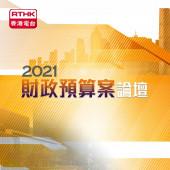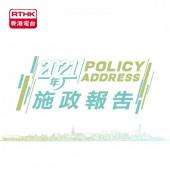 Loading ...
Loading ...Dr David Fang, Past Chairman of the HKSAR Health and Medical Development Advisory Committee
2021-03-07
返回
Dr David Fang, Past Chairman of the HKSAR Health and Medical Development Advisory Committee
2021-03-07
My Dear Sons,
The Government recently proposed to amend the Medical Registration Ordinance to allow non-Hongkong medical graduates full registration to practise without examination. The proposal is limited to Hong Kong citizens graduating from approved outside medical schools, who have served in the public sector for 5 years.
Many people are still not aware that doctors graduating outside Hong Kong do not need to take any examination to practise medicine here. All they need is to find employment with the Hospital Authority, Department of Health, or the 2 Universities. They are granted a licence to practise in public institutions (limited registration), which will be renewed every 3 years. If they wish to practise independently in private, then they have to pass an examination which is set at the medical school graduation level.
The Medical Council has been criticised for setting protectionist examination with a very low pass rate. During the period 2012-16 the part 1 (professional knowledge) pass rate for graduates from USA, Canada, UK, Germany and Australia averaged 40%, from Mainland China 16%, and belt and road countries 11%. For part two (use of English) the pass rates were 100%, 70%, and 99% respectively. The part 3 (clinical exam) pass rates were 53%, 28% and 17%. Examinations are held twice yearly and candidates can have 5 attempts before any review.
You all know that I myself have failed many examinations in medical school, and at the specialist level. I have never blamed anyone for setting a high standard but only myself for inadequate preparation and inaptitude. When I passed my fellowship examination in Edinburgh in 1978 the overall pass rate was 25%. Nowadays of course we strive for a much higher pass rate, but with medical graduates from many different countries, that may be difficult to achieve.
The Medical Council has the duty to ensure a safe standard of practice with general registration because it allows practice without supervision. To say that the Council purposely designs an examination to keep out foreign graduates is unfair and groundless.
The Hospital Authority (HA) provides well over 90 percent of inpatient and outpatient services in Hong Kong at little or no cost to users. It is no surprise that there is a long waiting list for everything. The problem is attributable to the overall lack of sustainable healthcare financing. The present system has clearly proven unsustainable.
There has been a rapid increase of annual medical student intake by the two medical schools in recent years, which today stand at 530 but if government approves will soon reach 590.
So far, any health manpower planning has proven sadly disappointing.
In 1997,130 of the 270 graduating interns could not find jobs. HA hurriedly created 70 medical posts based on 3-year contracts. Despite strenuous objection from the deans, the medical student intake was cut from 300 to 250. Then, in 2002-3, HA cut 1067 of its medical, nursing and allied health professional staff through a voluntary early retirement scheme in 2 rounds. Yet now it tells us that there are 660 vacant posts for doctors.
Adding doctors alone will do little to alleviate the shortfall of public medical services. Every time you send a patient for elective MRI scanning you are told that the waiting time is at least one year. You want to admit a patient for treatment now but there is no bed available for 3 weeks. Your patient needs surgery for severe knee pain but the queue is 2 years.
To make full use of existing medical staff, funding must be made available for additional nurses, allied health professionals, supporting staff, beds, operation theatres, imaging scanners, office space, inpatient and outpatient facilities. We need a primary care system that effectively reduces dependence on hospitals. Much more can be gained through an improved public-private healthcare interface.
The plight of frontline public doctors is well recognised, but the attraction to move to private practice is not due to a much-glorified swollen income. Young doctors leave HA because of frustration with their work. They feel helpless and see little chance for promotion to consultant level. Even so I don’t want any of you to leave the HA.
In February this year, the Medical Licentiate Society of Hong Kong, after surveying 302 members who are non-local medical graduates, published their strong opinion regarding the fairness, necessity and importance of the licencing examination. They stress that the examination is essential for a safe standard of practice, and 12% of them have yet to pass it.
Hong Kong citizens graduating from reputable outside medical schools should be welcome to receive on-the-job specialist training here, but they will be competing with local graduates for training posts. There has always been a shortage of training posts due to lack of funding, and the Academy of Medicine Colleges have testified to this. Approved trainees go through 6 years of structured training, sit a basic specialist exam at 2 years, and an exit exam at the end. Having completed the training and examinations, local and non-local medical graduates become Fellows of the Academy of Medicine.
I see no need for overseas medical graduates to get on the general registry if they qualify as Academy Fellows. They should be registered as specialists and allowed to practise in their own field.
Some Hong Kong citizens who have completed specialist training abroad may have private practice as their main reason to come back. If so, why not allow them to take the specialist examination together with local trainees? Examination at the medical school level may be unfair to them, as the Hon Mr Tommy Cheung alluded to, but they should feel comfortable to be examined in their own specialty.
My main objection is the government’s proposal to set up a committee to vet a list of medical schools for approval of exemption. This committee bypasses the Medical Council and tramples our professional autonomy, which is an infringement of the Basic Law (Article 142). At best the government will create another committee within the Medical Council, but this alters the structure of the Council and equally negates the long-established principle of one objective standard fair to all.
Furthermore, the proposed committee will face much political pressure, including from non-English speaking influences, which will change the practice and teaching of medicine here forever. And what if, as you all suspect, there are insufficient graduates coming back to take up the offer? Your worst suspicions will probably come true. The door will be open to non-HK citizens.
Ultimately, it is the Hong Kong people who will pay with their health.
My dear Sons, ask your friends who are in the other professions to take heed. Their professional autonomy may be the next target.
Your loving
Dad
The Government recently proposed to amend the Medical Registration Ordinance to allow non-Hongkong medical graduates full registration to practise without examination. The proposal is limited to Hong Kong citizens graduating from approved outside medical schools, who have served in the public sector for 5 years.
Many people are still not aware that doctors graduating outside Hong Kong do not need to take any examination to practise medicine here. All they need is to find employment with the Hospital Authority, Department of Health, or the 2 Universities. They are granted a licence to practise in public institutions (limited registration), which will be renewed every 3 years. If they wish to practise independently in private, then they have to pass an examination which is set at the medical school graduation level.
The Medical Council has been criticised for setting protectionist examination with a very low pass rate. During the period 2012-16 the part 1 (professional knowledge) pass rate for graduates from USA, Canada, UK, Germany and Australia averaged 40%, from Mainland China 16%, and belt and road countries 11%. For part two (use of English) the pass rates were 100%, 70%, and 99% respectively. The part 3 (clinical exam) pass rates were 53%, 28% and 17%. Examinations are held twice yearly and candidates can have 5 attempts before any review.
You all know that I myself have failed many examinations in medical school, and at the specialist level. I have never blamed anyone for setting a high standard but only myself for inadequate preparation and inaptitude. When I passed my fellowship examination in Edinburgh in 1978 the overall pass rate was 25%. Nowadays of course we strive for a much higher pass rate, but with medical graduates from many different countries, that may be difficult to achieve.
The Medical Council has the duty to ensure a safe standard of practice with general registration because it allows practice without supervision. To say that the Council purposely designs an examination to keep out foreign graduates is unfair and groundless.
The Hospital Authority (HA) provides well over 90 percent of inpatient and outpatient services in Hong Kong at little or no cost to users. It is no surprise that there is a long waiting list for everything. The problem is attributable to the overall lack of sustainable healthcare financing. The present system has clearly proven unsustainable.
There has been a rapid increase of annual medical student intake by the two medical schools in recent years, which today stand at 530 but if government approves will soon reach 590.
So far, any health manpower planning has proven sadly disappointing.
In 1997,130 of the 270 graduating interns could not find jobs. HA hurriedly created 70 medical posts based on 3-year contracts. Despite strenuous objection from the deans, the medical student intake was cut from 300 to 250. Then, in 2002-3, HA cut 1067 of its medical, nursing and allied health professional staff through a voluntary early retirement scheme in 2 rounds. Yet now it tells us that there are 660 vacant posts for doctors.
Adding doctors alone will do little to alleviate the shortfall of public medical services. Every time you send a patient for elective MRI scanning you are told that the waiting time is at least one year. You want to admit a patient for treatment now but there is no bed available for 3 weeks. Your patient needs surgery for severe knee pain but the queue is 2 years.
To make full use of existing medical staff, funding must be made available for additional nurses, allied health professionals, supporting staff, beds, operation theatres, imaging scanners, office space, inpatient and outpatient facilities. We need a primary care system that effectively reduces dependence on hospitals. Much more can be gained through an improved public-private healthcare interface.
The plight of frontline public doctors is well recognised, but the attraction to move to private practice is not due to a much-glorified swollen income. Young doctors leave HA because of frustration with their work. They feel helpless and see little chance for promotion to consultant level. Even so I don’t want any of you to leave the HA.
In February this year, the Medical Licentiate Society of Hong Kong, after surveying 302 members who are non-local medical graduates, published their strong opinion regarding the fairness, necessity and importance of the licencing examination. They stress that the examination is essential for a safe standard of practice, and 12% of them have yet to pass it.
Hong Kong citizens graduating from reputable outside medical schools should be welcome to receive on-the-job specialist training here, but they will be competing with local graduates for training posts. There has always been a shortage of training posts due to lack of funding, and the Academy of Medicine Colleges have testified to this. Approved trainees go through 6 years of structured training, sit a basic specialist exam at 2 years, and an exit exam at the end. Having completed the training and examinations, local and non-local medical graduates become Fellows of the Academy of Medicine.
I see no need for overseas medical graduates to get on the general registry if they qualify as Academy Fellows. They should be registered as specialists and allowed to practise in their own field.
Some Hong Kong citizens who have completed specialist training abroad may have private practice as their main reason to come back. If so, why not allow them to take the specialist examination together with local trainees? Examination at the medical school level may be unfair to them, as the Hon Mr Tommy Cheung alluded to, but they should feel comfortable to be examined in their own specialty.
My main objection is the government’s proposal to set up a committee to vet a list of medical schools for approval of exemption. This committee bypasses the Medical Council and tramples our professional autonomy, which is an infringement of the Basic Law (Article 142). At best the government will create another committee within the Medical Council, but this alters the structure of the Council and equally negates the long-established principle of one objective standard fair to all.
Furthermore, the proposed committee will face much political pressure, including from non-English speaking influences, which will change the practice and teaching of medicine here forever. And what if, as you all suspect, there are insufficient graduates coming back to take up the offer? Your worst suspicions will probably come true. The door will be open to non-HK citizens.
Ultimately, it is the Hong Kong people who will pay with their health.
My dear Sons, ask your friends who are in the other professions to take heed. Their professional autonomy may be the next target.
Your loving
Dad
Politicians and public figures from a range of backgrounds take turns to have their say on important matters of the day in this personal view programme.
Catch it live: Sunday 8:15am - 8:25am
Podcast: Updated weekly and available after broadcast.













